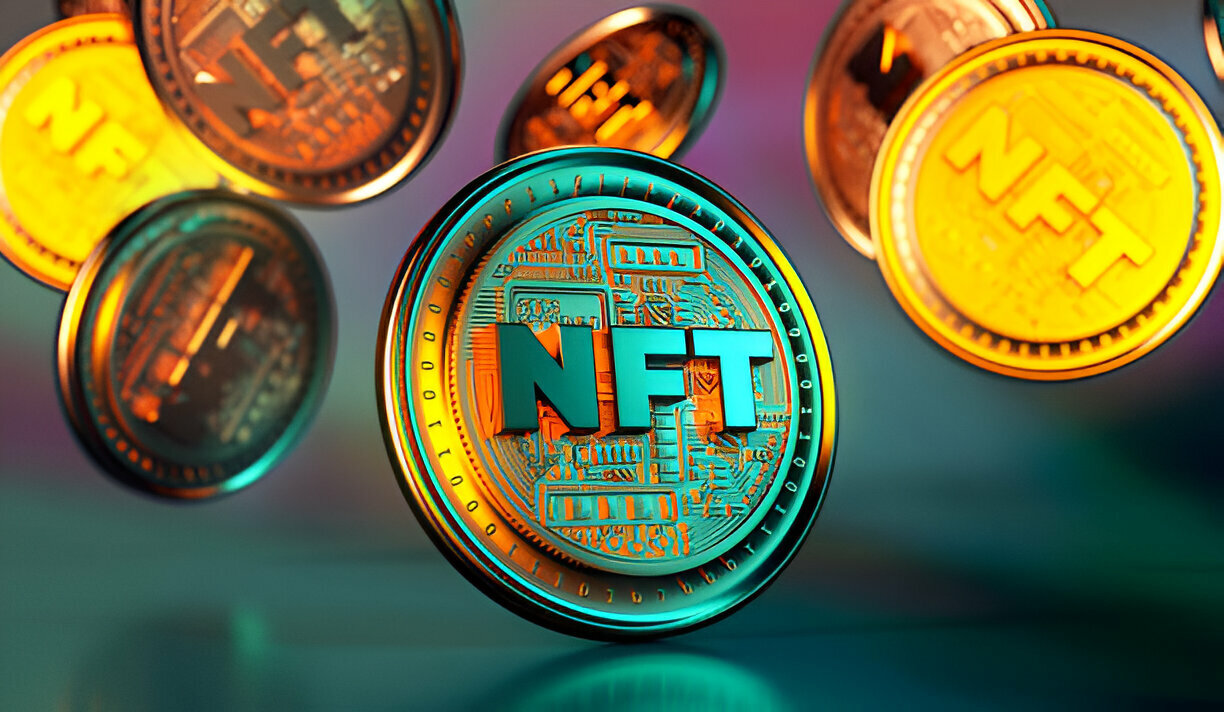Blockchain Technology: Beyond Cryptocurrencies

Blockchain technology has transcended its origins in cryptocurrencies to become a transformative force across numerous industries. While cryptocurrencies like Bitcoin and Ethereum continue to capture headlines, the underlying blockchain technology is driving innovation in areas ranging from finance and supply chain management to healthcare and government. In this comprehensive guide, we will explore the broader applications of blockchain technology, its impact on various sectors, and the potential it holds for shaping the future.
The Genesis of Blockchain Technology
Blockchain technology was introduced to the world through the release of Bitcoin’s whitepaper by the pseudonymous creator Satoshi Nakamoto in 2008. Bitcoin, the first and most well-known cryptocurrency, was developed to address the issue of trust in digital transactions. It achieved this by using blockchain technology to create a decentralized, immutable ledger that records all transactions on a network of computers.
The core elements of blockchain technology that emerged with Bitcoin are:
Decentralization: Blockchain operates on a decentralized network of computers, eliminating the need for a central authority or intermediary.
Immutable Ledger: Once data is recorded on the blockchain, it cannot be altered or deleted, ensuring the integrity of the historical record.
Cryptographic Security: Transactions on the blockchain are secured through cryptographic techniques, providing a high level of data protection.
Consensus Mechanisms: Blockchains use consensus algorithms to validate and agree on the content of the ledger, ensuring trust and transparency.
Digital Tokens: Blockchains often feature digital tokens, representing assets or utility within the network.
Blockchain Beyond Bitcoin
The success of Bitcoin paved the way for the exploration of blockchain technology in various sectors beyond cryptocurrencies. The versatility of the technology allows it to address a wide range of challenges and opportunities.
Finance and Banking
The financial sector was quick to recognize the potential of blockchain technology. By streamlining processes, reducing fraud, and enhancing transparency, blockchain has the power to revolutionize the way financial institutions operate. Some key applications include:
Digital Payments: Cryptocurrencies and blockchain technology enable fast, low-cost cross-border payments and international remittances.
Smart Contracts: Self-executing smart contracts automate and enforce contractual agreements, reducing the need for intermediaries.
Tokenization of Assets: Assets like real estate, art, and stocks can be represented as digital tokens on the blockchain, allowing for fractional ownership and easier transfer of ownership.
Trade Finance: Blockchain can enhance trade finance by providing a more transparent and efficient platform for managing trade transactions.
Supply Chain Management
Blockchain technology can revolutionize supply chain management by enhancing transparency, traceability, and efficiency. Companies can track the movement of goods from production to delivery using a distributed ledger, reducing errors and fraud.
Healthcare
In healthcare, blockchain offers the potential to create secure and interoperable electronic health records (EHRs). Patients could have control over their health data and grant access to healthcare providers as needed, ensuring privacy and data integrity.
Government and Identity
Blockchain technology can transform government operations, from secure voting systems to digital identities. Decentralized identity systems can reduce identity theft and streamline government services.
Energy and Environment
Blockchain is helping to create more transparent and efficient energy markets. It can facilitate peer-to-peer energy trading, track renewable energy production, and enable carbon credit trading.
Education
Blockchain technology has the potential to securely and transparently store and verify academic credentials, making it easier for employers and educational institutions to validate degrees and certifications.
Art and Entertainment
Blockchain technology can address issues related to provenance, copyright, and royalties in the art and entertainment industries. Artists can create unique digital assets and track their ownership and usage.
Challenges and Considerations
While blockchain technology holds tremendous promise, it is not without its challenges and considerations:
Scalability: Some blockchain networks face scalability issues, limiting their capacity to handle a large volume of transactions.
Regulation: The regulatory environment for blockchain and cryptocurrencies varies by jurisdiction and is evolving rapidly.
Interoperability: Achieving interoperability between different blockchain networks and applications remains a challenge.
Privacy and Security: While blockchain technology provides strong security through cryptography, data privacy and security concerns persist.
Energy Consumption: Some blockchain networks, like Bitcoin, consume substantial amounts of energy, raising environmental concerns.
The Future of Blockchain Technology
The future of blockchain technology is a dynamic landscape characterized by continuous innovation, transformative developments, and exciting possibilities. As we peer into the crystal ball of blockchain’s tomorrow, it’s clear that this transformative technology is poised to revolutionize an array of sectors, redefine the way we interact with digital assets, and shape the trajectory of the global economy.
- Blockchain 3.0: Scalability and Interoperability
The next generation of blockchain technology, often referred to as Blockchain 3.0, is set to address two critical challenges that have been bottlenecks for broader adoption: scalability and interoperability. Solutions are emerging that aim to increase the transaction processing capacity of blockchain networks while ensuring they can seamlessly interact with one another. This not only opens the door to more complex and high-throughput applications but also enhances the synergy between different blockchain ecosystems. - Central Bank Digital Currencies (CBDCs): A Digital Revolution in Finance
The world of finance is on the brink of a digital transformation with the advent of Central Bank Digital Currencies (CBDCs). Governments around the globe are exploring the development of CBDCs, which are digital versions of traditional fiat currencies. These digital currencies, backed and regulated by central banks, have the potential to offer an efficient, secure, and accessible medium of exchange for citizens. As they roll out, CBDCs could redefine the way we transact, save, and manage our money. - Non-Fungible Tokens (NFTs) and the Metaverse
Non-Fungible Tokens (NFTs) have been making waves in the worlds of art, gaming, and entertainment, and they are set to play an integral role in the unfolding metaverse. These unique digital assets, representing ownership of digital or physical items, open up exciting possibilities for creators, artists, and collectors. In the metaverse, NFTs will become the building blocks of a new digital reality where users can buy, sell, and trade virtual assets across various virtual worlds and platforms. - Decentralized Finance (DeFi): The Democratization of Finance
Decentralized Finance, or DeFi, is revolutionizing traditional finance by offering a range of financial services through decentralized protocols. From lending and borrowing to trading and asset management, DeFi platforms operate without the need for intermediaries. This democratization of financial services provides greater accessibility, transparency, and autonomy to users. The DeFi ecosystem continues to expand and evolve, introducing innovative solutions and reshaping the financial landscape. - Blockchain in the Internet of Things (IoT)
The convergence of blockchain technology with the Internet of Things (IoT) holds immense potential. By combining the security and transparency of blockchain with IoT devices, a new era of trust and data integrity is dawning. IoT devices can use blockchain to securely record and share data, enabling real-time monitoring and control across various industries, from smart cities to supply chain management. This synergy will drive efficiency, reliability, and automation across connected devices. - Blockchain in Space: The Final Frontier
Blockchain’s reach extends beyond our planet, as it finds applications in space-based technologies. The development of satellite networks, space tourism, and lunar missions all stand to benefit from the decentralized and secure nature of blockchain technology. By providing a trusted framework for data transfer, coordination, and asset management in space, blockchain is facilitating the exploration of the cosmos like never before. - Sustainability and Green Blockchains
Environmental concerns are driving a push for sustainability in the blockchain space. Energy-efficient consensus mechanisms and green blockchain initiatives aim to reduce the carbon footprint associated with blockchain networks. These efforts align with the global transition towards sustainability and offer a responsible approach to blockchain technology. Green blockchains are expected to gain prominence, especially in the face of growing awareness about the environmental impact of energy-intensive blockchain operations.
As we venture into the future of blockchain technology, these developments and trends will continue to shape the way we live, work, and transact. The blockchain’s innate capacity to enhance trust, transparency, and efficiency is enabling novel solutions to age-old problems and unlocking opportunities we could scarcely imagine just a few years ago. The rapid pace of innovation and collaboration in the blockchain space ensures that the next chapter of this digital revolution will be filled with surprises, breakthroughs, and transformative change. Staying informed and actively participating in this evolving landscape will be key to harnessing the full potential of blockchain technology as it reshapes our world.
Conclusion
Blockchain technology has come a long way since the inception of Bitcoin. It has transcended its origins as a cryptocurrency enabler to become a driving force of innovation across numerous industries. With the ability to enhance transparency, security, and efficiency, blockchain technology holds the potential to shape the future of finance, supply chain management, healthcare, government, energy, education, and more.
While challenges remain, ongoing developments in blockchain technology, from scalability solutions to the emergence of NFTs and the growth of DeFi, suggest a promising future. As the technology continues to evolve, its transformative impact on our world is likely to become increasingly apparent, making it a key player in the digital age. As such, it is essential for individuals and organizations to stay informed and actively engage with blockchain innovations to harness their full potential.

 Bitcoin
Bitcoin  Ethereum
Ethereum  Tether
Tether  XRP
XRP  USDC
USDC  Solana
Solana  TRON
TRON  Lido Staked Ether
Lido Staked Ether  Figure Heloc
Figure Heloc  Dogecoin
Dogecoin  WhiteBIT Coin
WhiteBIT Coin  Bitcoin Cash
Bitcoin Cash  USDS
USDS  Cardano
Cardano  Wrapped stETH
Wrapped stETH  LEO Token
LEO Token  Hyperliquid
Hyperliquid  Wrapped Bitcoin
Wrapped Bitcoin  Canton
Canton  Binance Bridged USDT (BNB Smart Chain)
Binance Bridged USDT (BNB Smart Chain)  Ethena USDe
Ethena USDe  Monero
Monero  Chainlink
Chainlink  Stellar
Stellar  Wrapped eETH
Wrapped eETH  USD1
USD1  Rain
Rain  sUSDS
sUSDS  Dai
Dai  Hedera
Hedera  PayPal USD
PayPal USD  Coinbase Wrapped BTC
Coinbase Wrapped BTC  Litecoin
Litecoin  Zcash
Zcash  Avalanche
Avalanche  WETH
WETH  Shiba Inu
Shiba Inu  Sui
Sui  Toncoin
Toncoin  USDT0
USDT0  World Liberty Financial
World Liberty Financial  Cronos
Cronos  Tether Gold
Tether Gold  MemeCore
MemeCore  PAX Gold
PAX Gold  Uniswap
Uniswap  Polkadot
Polkadot  Ethena Staked USDe
Ethena Staked USDe  BlackRock USD Institutional Digital Liquidity Fund
BlackRock USD Institutional Digital Liquidity Fund  Mantle
Mantle  Aave
Aave  Falcon USD
Falcon USD  Aster
Aster  Pepe
Pepe  Bittensor
Bittensor  Global Dollar
Global Dollar  Circle USYC
Circle USYC  OKB
OKB  Ripple USD
Ripple USD  syrupUSDC
syrupUSDC  Bitget Token
Bitget Token  Sky
Sky  Pi Network
Pi Network  HTX DAO
HTX DAO  BFUSD
BFUSD  Ethereum Classic
Ethereum Classic  NEAR Protocol
NEAR Protocol  Ondo
Ondo  POL (ex-MATIC)
POL (ex-MATIC)  Internet Computer
Internet Computer  Superstate Short Duration U.S. Government Securities Fund (USTB)
Superstate Short Duration U.S. Government Securities Fund (USTB)  Gate
Gate  KuCoin
KuCoin  Worldcoin
Worldcoin  Cosmos Hub
Cosmos Hub  Jupiter Perpetuals Liquidity Provider Token
Jupiter Perpetuals Liquidity Provider Token  Pump.fun
Pump.fun  Midnight
Midnight  USDtb
USDtb  Jito Staked SOL
Jito Staked SOL  NEXO
NEXO  pippin
pippin  Ethena
Ethena  Spiko EU T-Bills Money Market Fund
Spiko EU T-Bills Money Market Fund  Binance-Peg WETH
Binance-Peg WETH  Rocket Pool ETH
Rocket Pool ETH  Official Trump
Official Trump  Binance Bridged USDC (BNB Smart Chain)
Binance Bridged USDC (BNB Smart Chain)  Algorand
Algorand  OUSG
OUSG  Wrapped BNB
Wrapped BNB  USDD
USDD  Function FBTC
Function FBTC  Janus Henderson Anemoy AAA CLO Fund
Janus Henderson Anemoy AAA CLO Fund  Render
Render  Ondo US Dollar Yield
Ondo US Dollar Yield  Filecoin
Filecoin  syrupUSDT
syrupUSDT  Aptos
Aptos  VeChain
VeChain  Binance Staked SOL
Binance Staked SOL  Beldex
Beldex  Janus Henderson Anemoy Treasury Fund
Janus Henderson Anemoy Treasury Fund  Usual USD
Usual USD  Arbitrum
Arbitrum  GHO
GHO  Stable
Stable  Polygon Bridged USDC (Polygon PoS)
Polygon Bridged USDC (Polygon PoS)  Bonk
Bonk  Solv Protocol BTC
Solv Protocol BTC  A7A5
A7A5  Lombard Staked BTC
Lombard Staked BTC  TrueUSD
TrueUSD  Decred
Decred  Jupiter
Jupiter  clBTC
clBTC  USDai
USDai  EURC
EURC  Sei
Sei  Stacks
Stacks  StakeWise Staked ETH
StakeWise Staked ETH  Virtuals Protocol
Virtuals Protocol  Dash
Dash  Kinetiq Staked HYPE
Kinetiq Staked HYPE  tBTC
tBTC  Pudgy Penguins
Pudgy Penguins  PancakeSwap
PancakeSwap  WrappedM by M0
WrappedM by M0  JUST
JUST  Tezos
Tezos  Kinesis Gold
Kinesis Gold  Ether.fi
Ether.fi  Story
Story  Lighter
Lighter  Mantle Staked Ether
Mantle Staked Ether  Artificial Superintelligence Alliance
Artificial Superintelligence Alliance  c8ntinuum
c8ntinuum  Polygon PoS Bridged DAI (Polygon POS)
Polygon PoS Bridged DAI (Polygon POS)  Chiliz
Chiliz  Resolv wstUSR
Resolv wstUSR  Curve DAO
Curve DAO  COCA
COCA  PRIME
PRIME  AINFT
AINFT  Liquid Staked ETH
Liquid Staked ETH  BitTorrent
BitTorrent  Arbitrum Bridged WBTC (Arbitrum One)
Arbitrum Bridged WBTC (Arbitrum One)  Gnosis
Gnosis  Bitcoin SV
Bitcoin SV  Sun Token
Sun Token  Injective
Injective  Wrapped Flare
Wrapped Flare  Kaia
Kaia  ADI
ADI  L2 Standard Bridged WETH (Base)
L2 Standard Bridged WETH (Base)  Aerodrome Finance
Aerodrome Finance  Steakhouse USDC Morpho Vault
Steakhouse USDC Morpho Vault  LayerZero
LayerZero  Pyth Network
Pyth Network  crvUSD
crvUSD  IOTA
IOTA  The Graph
The Graph  Binance-Peg XRP
Binance-Peg XRP  JasmyCoin
JasmyCoin  Ether.Fi Liquid ETH
Ether.Fi Liquid ETH  Legacy Frax Dollar
Legacy Frax Dollar  Renzo Restaked ETH
Renzo Restaked ETH  Olympus
Olympus  FLOKI
FLOKI  sBTC
sBTC  SPX6900
SPX6900  Celestia
Celestia  Helium
Helium  Jupiter Staked SOL
Jupiter Staked SOL  BTSE Token
BTSE Token  Savings USDD
Savings USDD  Lido DAO
Lido DAO  Maple Finance
Maple Finance  Humanity
Humanity  Marinade Staked SOL
Marinade Staked SOL  Conflux
Conflux  Arbitrum Bridged WETH (Arbitrum One)
Arbitrum Bridged WETH (Arbitrum One)  Siren
Siren  DoubleZero
DoubleZero  Optimism
Optimism  Telcoin
Telcoin  Staked Aave
Staked Aave  AB
AB  Ethereum Name Service
Ethereum Name Service  Stader ETHx
Stader ETHx  Neutrl USD
Neutrl USD  Starknet
Starknet  Monad
Monad  YLDS
YLDS  USDa
USDa  Lorenzo Wrapped Bitcoin
Lorenzo Wrapped Bitcoin  Spiko US T-Bills Money Market Fund
Spiko US T-Bills Money Market Fund  Axie Infinity
Axie Infinity  GTETH
GTETH  AUSD
AUSD  Ultima
Ultima  The Sandbox
The Sandbox  Trust Wallet
Trust Wallet  Blockchain Capital
Blockchain Capital  Zebec Network
Zebec Network  Pendle
Pendle  Flying Tulip
Flying Tulip  Ape and Pepe
Ape and Pepe  Plasma
Plasma  dogwifhat
dogwifhat  SwissBorg
SwissBorg  Terra Luna Classic
Terra Luna Classic  Tradable NA Rent Financing Platform SSTN
Tradable NA Rent Financing Platform SSTN  Falcon Finance
Falcon Finance  Staked USDai
Staked USDai  Vision
Vision  NEO
NEO  ZKsync
ZKsync  Theta Network
Theta Network  River
River  Basic Attention
Basic Attention  Fidelity Digital Interest Token
Fidelity Digital Interest Token  Ribbita by Virtuals
Ribbita by Virtuals  Coinbase Wrapped Staked ETH
Coinbase Wrapped Staked ETH  Onyxcoin
Onyxcoin  Decentraland
Decentraland  Lombard
Lombard  Wrapped STX (Velar)
Wrapped STX (Velar)  Compound
Compound  InfiniFi USD
InfiniFi USD  The9bit
The9bit  GALA
GALA  MX
MX  Hastra Wrapped YLDS
Hastra Wrapped YLDS  Venice Token
Venice Token  Convex Finance
Convex Finance  WeFi
WeFi  Wrapped ApeCoin
Wrapped ApeCoin  Shmeegus
Shmeegus  KOGE
KOGE  RealLink
RealLink  Avalanche Bridged BTC (Avalanche)
Avalanche Bridged BTC (Avalanche)  DeXe
DeXe  Binance-Peg BUSD
Binance-Peg BUSD  Raydium
Raydium  Satoshi Stablecoin
Satoshi Stablecoin  Greyhunt
Greyhunt  Fluid
Fluid  STASIS EURO
STASIS EURO  Fartcoin
Fartcoin  Binance-Peg Dogecoin
Binance-Peg Dogecoin  eCash
eCash  Aster USDF
Aster USDF  GUSD
GUSD  Sonic
Sonic  Golem
Golem  Power Protocol
Power Protocol  Theo Short Duration US Treasury Fund
Theo Short Duration US Treasury Fund  Savings Dai
Savings Dai  OriginTrail
OriginTrail  WEMIX
WEMIX  0G
0G  ether.fi Staked ETH
ether.fi Staked ETH  THORChain
THORChain  Seeker
Seeker  Immutable
Immutable  Unit Bitcoin
Unit Bitcoin  Rollbit Coin
Rollbit Coin  Apollo Diversified Credit Securitize Fund
Apollo Diversified Credit Securitize Fund  GoMining Token
GoMining Token  Wrapped HYPE
Wrapped HYPE  MultiversX
MultiversX  Berachain
Berachain  Kraken Wrapped BTC
Kraken Wrapped BTC  coco
coco  Staked Cap USD
Staked Cap USD  SafePal
SafePal  1INCH
1INCH  BENQI Liquid Staked AVAX
BENQI Liquid Staked AVAX  BUILDon
BUILDon  Wrapped Aave Ethereum USDC
Wrapped Aave Ethereum USDC  MimbleWimbleCoin
MimbleWimbleCoin  StarkGate Bridged USDC (Starknet)
StarkGate Bridged USDC (Starknet)  Keeta
Keeta  Gate Wrapped BTC
Gate Wrapped BTC  Synthetix
Synthetix  Aster Staked BNB
Aster Staked BNB  Ozone Chain
Ozone Chain  Comedian
Comedian  Jito
Jito  Arweave
Arweave  Amp
Amp  Treehouse ETH
Treehouse ETH  CoW Protocol
CoW Protocol  Binance Wrapped BTC
Binance Wrapped BTC  DOLA
DOLA  Loaded Lions
Loaded Lions  Pleasing USD
Pleasing USD  Walrus
Walrus  CASH
CASH  Cap USD
Cap USD  EigenCloud (prev. EigenLayer)
EigenCloud (prev. EigenLayer)  Livepeer
Livepeer  BitMart
BitMart  Re Protocol reUSD
Re Protocol reUSD  Frax USD
Frax USD  Noble USDC
Noble USDC  Quantum Resistant Ledger
Quantum Resistant Ledger  GRX Chain
GRX Chain  Unibase
Unibase  Pieverse
Pieverse  PayFi Strategy Token USDC
PayFi Strategy Token USDC  StandX DUSD
StandX DUSD  Polygon PoS Bridged WETH (Polygon POS)
Polygon PoS Bridged WETH (Polygon POS)  Onchain Yield Coin
Onchain Yield Coin  Melania Meme
Melania Meme  Avant USD
Avant USD  Gauntlet USDC Prime Morpho Vault
Gauntlet USDC Prime Morpho Vault  Securitize Tokenized AAA CLO Fund
Securitize Tokenized AAA CLO Fund  Wrapped Aave Ethereum USDT
Wrapped Aave Ethereum USDT  Midas mF-ONE
Midas mF-ONE  Wormhole
Wormhole  Arbitrum Bridged Wrapped eETH (Arbitrum)
Arbitrum Bridged Wrapped eETH (Arbitrum)  Tokenize Xchange
Tokenize Xchange  Solv Protocol Staked BTC
Solv Protocol Staked BTC  AI Rig Complex
AI Rig Complex  Gas
Gas  Bedrock BTC
Bedrock BTC  AWE Network
AWE Network  HOME
HOME  ApeCoin
ApeCoin  MNEE USD Stablecoin
MNEE USD Stablecoin  Tradable Singapore Fintech SSL
Tradable Singapore Fintech SSL  Mantle Bridged WETH (Mantle)
Mantle Bridged WETH (Mantle)  Resolv USR
Resolv USR  Arbitrum Bridged wstETH (Arbitrum)
Arbitrum Bridged wstETH (Arbitrum)  Pleasing Gold
Pleasing Gold  Mantle Restaked ETH
Mantle Restaked ETH  Ring USD
Ring USD  Theta Fuel
Theta Fuel  Impossible Cloud Network Token
Impossible Cloud Network Token  Oasis
Oasis  Cronos Bridged USDC (Cronos)
Cronos Bridged USDC (Cronos)  yearn.finance
yearn.finance  JPool Staked SOL
JPool Staked SOL  Open Campus
Open Campus  Qtum
Qtum  Drift Staked SOL
Drift Staked SOL  Luxxcoin
Luxxcoin  Anzen USDz
Anzen USDz  XDAI
XDAI  Ravencoin
Ravencoin  Nexus Mutual
Nexus Mutual  Meteora
Meteora  Superbridge Bridged wstETH (Base)
Superbridge Bridged wstETH (Base)  Kusama
Kusama  Polygon Bridged WBTC (Polygon POS)
Polygon Bridged WBTC (Polygon POS)  Dog (Bitcoin)
Dog (Bitcoin)  USDA
USDA  Reserve Rights
Reserve Rights  Gaib AI Dollar Alpha USDC
Gaib AI Dollar Alpha USDC  Aethir
Aethir  Bybit Staked SOL
Bybit Staked SOL  Grass
Grass  Legacy Token
Legacy Token  Shuffle
Shuffle  Espresso
Espresso  Universal BTC
Universal BTC  0x Protocol
0x Protocol  Zora
Zora  Kamino
Kamino  Savings xDAI
Savings xDAI  Wrapped AVAX
Wrapped AVAX  Cheems Token
Cheems Token  Akash Network
Akash Network  Core
Core  Toshi
Toshi  KUB Coin
KUB Coin  Strata Senior USDe
Strata Senior USDe  JUSD
JUSD  INI
INI  Swop
Swop  SoSoValue
SoSoValue  ViciCoin
ViciCoin  Flare Bridged XRP (Flare)
Flare Bridged XRP (Flare)  Quack AI
Quack AI  Zilliqa
Zilliqa  Matrixdock Gold
Matrixdock Gold  MetaDAO
MetaDAO  Staked HYPE
Staked HYPE  MAG7.ssi
MAG7.ssi  Chutes
Chutes  Creditcoin
Creditcoin  VanEck Treasury Fund
VanEck Treasury Fund  MYX Finance
MYX Finance  EUR CoinVertible
EUR CoinVertible  AIOZ Network
AIOZ Network  Origin Ether
Origin Ether  DigiByte
DigiByte  dYdX
dYdX  Gama Token
Gama Token  Ronin
Ronin  KAITO
KAITO  Concordium
Concordium  MANTRA [Old]
MANTRA [Old]  Cygnus Finance Global USD
Cygnus Finance Global USD  Felix feUSD
Felix feUSD  Binance-Peg Cardano
Binance-Peg Cardano  TempleDAO
TempleDAO  Four
Four  Nervos Network
Nervos Network  Aztec
Aztec  AgentFun.AI
AgentFun.AI  Mina Protocol
Mina Protocol  Movement
Movement  Threshold Network
Threshold Network  Safe
Safe  UCHAIN
UCHAIN  Ethena Staked ENA
Ethena Staked ENA  SOON
SOON  Rekt
Rekt  Brett
Brett  SuperVerse
SuperVerse  CoinEx
CoinEx  Puff The Dragon
Puff The Dragon  The Vault Staked SOL
The Vault Staked SOL  TDCCP
TDCCP  MindWaveDAO
MindWaveDAO  Railgun
Railgun  Turbo
Turbo  Nano
Nano  Linea
Linea  GMX
GMX  Baby Doge Coin
Baby Doge Coin  ETHPlus
ETHPlus  BCGame Coin
BCGame Coin  Nexpace
Nexpace  Alchemist AI
Alchemist AI  Everlyn
Everlyn  Islamic Coin
Islamic Coin  Phantom Staked SOL
Phantom Staked SOL  AI Companions
AI Companions  Super OETH
Super OETH  Staked TRX
Staked TRX  Flow
Flow  Magic Internet Money (Arbitrum)
Magic Internet Money (Arbitrum)  VVS Finance
VVS Finance  Steakhouse ETH Morpho Vault
Steakhouse ETH Morpho Vault  Wrapped Ethereum (Sollet)
Wrapped Ethereum (Sollet)  Moca Network
Moca Network  Jelly-My-Jelly
Jelly-My-Jelly  币安人生 (BinanceLife)
币安人生 (BinanceLife)  Conscious Token
Conscious Token  Cysic
Cysic  Binance-Peg SOL
Binance-Peg SOL  Mog Coin
Mog Coin  aelf
aelf  Astar
Astar  Siacoin
Siacoin  BlazeStake Staked SOL
BlazeStake Staked SOL  DeepBook
DeepBook  OpenEden OpenDollar
OpenEden OpenDollar  XPR Network
XPR Network  Metal Blockchain
Metal Blockchain  Qubic
Qubic  Space and Time
Space and Time  Numeraire
Numeraire  StraitsX XUSD
StraitsX XUSD  Arkham
Arkham  MegaUSD
MegaUSD  Paycoin
Paycoin  Kinetiq Earn Vault
Kinetiq Earn Vault  Midas mHYPER
Midas mHYPER  Axelar
Axelar  Verus
Verus  sUSDa
sUSDa  The White Whale
The White Whale  QOM One Bridged USDT (QL1)
QOM One Bridged USDT (QL1)  Decentralized Social
Decentralized Social  Non-Playable Coin
Non-Playable Coin  Enso
Enso  UnifAI Network
UnifAI Network  Wrapped Pulse
Wrapped Pulse  VeThor
VeThor  RaveDAO
RaveDAO  BitDCA
BitDCA  Yuzu USD
Yuzu USD  ONFA
ONFA  ChainOpera AI
ChainOpera AI  Geodnet
Geodnet  QuantixAI
QuantixAI  Moonwell Flagship ETH (Morpho Vault)
Moonwell Flagship ETH (Morpho Vault)  ETHGas
ETHGas  XYO Network
XYO Network  Bridged Wrapped Ether (Linea)
Bridged Wrapped Ether (Linea)  Succinct
Succinct  Magic Internet Money (Ethereum)
Magic Internet Money (Ethereum)  Velo
Velo  Eurite
Eurite  Avant Staked USD
Avant Staked USD  earnAUSD
earnAUSD  Orca
Orca  Wrapped Savings rUSD
Wrapped Savings rUSD  BankrCoin
BankrCoin  Unit Pump
Unit Pump  Law Blocks AI
Law Blocks AI  PYTHIA
PYTHIA  Blur
Blur  Escoin
Escoin  Fidelity Digital Dollar
Fidelity Digital Dollar  Sushi
Sushi  Alphabet Class A (Ondo Tokenized Stock)
Alphabet Class A (Ondo Tokenized Stock)  Tesla xStock
Tesla xStock  Polymesh
Polymesh  Babypie Wrapped BTC
Babypie Wrapped BTC  Merlin Chain
Merlin Chain  Venus
Venus  Bitlayer
Bitlayer  bitcastle Token
bitcastle Token  Kava
Kava  cat in a dogs world
cat in a dogs world  HashKey Platform Token
HashKey Platform Token  Cronos Bridged USDT (Cronos)
Cronos Bridged USDT (Cronos)  Magic Eden
Magic Eden  Crypto.com Staked ETH
Crypto.com Staked ETH  Moo Deng
Moo Deng  The Game Company
The Game Company  ZIGChain
ZIGChain  Yooldo Games
Yooldo Games  Orbs
Orbs  Centrifuge
Centrifuge  USDKG
USDKG  Alloy Tether
Alloy Tether  ORDI
ORDI  Zama
Zama  RedStone
RedStone  Spark
Spark  Polygon Bridged weETH (Katana)
Polygon Bridged weETH (Katana)  Anvil
Anvil  Niza Global
Niza Global  Pirate Chain
Pirate Chain  Resolv Liquidity Provider Token
Resolv Liquidity Provider Token  Moonwell Flagship USDC (Morpho Vault)
Moonwell Flagship USDC (Morpho Vault)  Omni Network [Old]
Omni Network [Old]  Plume
Plume  Pax Dollar
Pax Dollar  DAI on PulseChain
DAI on PulseChain  USDX
USDX  Midas mTBILL
Midas mTBILL  VaultBridge Bridged WBTC (Katana)
VaultBridge Bridged WBTC (Katana)  Overnight.fi USD+
Overnight.fi USD+  Singularry
Singularry  Sygnum FIUSD Liquidity Fund
Sygnum FIUSD Liquidity Fund  Moonbirds
Moonbirds  Waves
Waves  Gunz
Gunz  Popcat
Popcat  Constellation
Constellation  Drift Protocol
Drift Protocol  Lagrange
Lagrange  Compounding OpenDollar
Compounding OpenDollar  Banana For Scale
Banana For Scale  DUSK
DUSK  GoPlus Security
GoPlus Security  cETH
cETH  Novem Pro
Novem Pro  staked USD1+
staked USD1+  Avantis
Avantis  Fractal Bitcoin
Fractal Bitcoin  would
would  Peanut the Squirrel
Peanut the Squirrel  Gemini Dollar
Gemini Dollar  Ether.fi Staked BTC
Ether.fi Staked BTC  WorldAssets
WorldAssets  Circle Internet Group (Ondo Tokenized Stock)
Circle Internet Group (Ondo Tokenized Stock)  Vana
Vana  Bio Protocol
Bio Protocol  Hex Trust USD
Hex Trust USD  GOHOME
GOHOME  Chia
Chia  Ondo U.S. Dollar Token
Ondo U.S. Dollar Token  Celo
Celo  TRIA
TRIA  APEX
APEX  Unipoly
Unipoly  Victoria VR
Victoria VR  Irys
Irys  YZY
YZY  BORA
BORA  IoTeX
IoTeX  Ardor
Ardor  Sahara AI
Sahara AI  SSV Network
SSV Network  Ankr Network
Ankr Network  Terra
Terra  Rocket Pool
Rocket Pool  Mask Network
Mask Network  Austin Capitals
Austin Capitals  Huobi BTC
Huobi BTC  OKX Wrapped BTC
OKX Wrapped BTC  LCX
LCX  Status
Status  Jupiter Lend JUPUSD
Jupiter Lend JUPUSD  Loopring
Loopring  Fulcrom
Fulcrom  Api3
Api3  AtomOne
AtomOne  Auki
Auki  TAGGER
TAGGER  AltLayer
AltLayer  UMA
UMA  BurnedFi
BurnedFi  ChangeNOW
ChangeNOW  Snek
Snek  Strata Junior USDe
Strata Junior USDe  Pundi X
Pundi X  Memecoin
Memecoin  Infrared Bera
Infrared Bera  Quai Network
Quai Network  BUSD
BUSD  Renzo Restaked LST
Renzo Restaked LST  Useless Coin
Useless Coin  Purr
Purr  TronBank
TronBank  iShares Silver Trust (Ondo Tokenized Stock)
iShares Silver Trust (Ondo Tokenized Stock)  Tellor Tributes
Tellor Tributes  SkyAI
SkyAI  IOST
IOST  Ontology
Ontology  SKALE
SKALE  ether.fi weETHs
ether.fi weETHs  StorX
StorX  Aegis YUSD
Aegis YUSD  Enjin Coin
Enjin Coin  Sign
Sign  Binance-Peg SHIB
Binance-Peg SHIB  MVL
MVL  Babylon
Babylon  Ventuals vHYPE
Ventuals vHYPE  stUSDT Staked USDT
stUSDT Staked USDT  SWFTCOIN
SWFTCOIN  Lista USD
Lista USD  Glidr
Glidr  Fluid Wrapped Staked ETH
Fluid Wrapped Staked ETH  KGeN
KGeN  Somnia
Somnia  パンチ (Punch)
パンチ (Punch)  BIM
BIM  Atoshi
Atoshi  BOTXCOIN
BOTXCOIN  Apro
Apro  EGL1
EGL1  Shentu
Shentu  GeorgePlaysClashRoyale
GeorgePlaysClashRoyale  Notcoin
Notcoin  Snowbank
Snowbank  Steem
Steem  Nirvana ANA
Nirvana ANA  Band
Band  Frankencoin
Frankencoin  DEAPCOIN
DEAPCOIN  GMT
GMT  Bounce
Bounce  Hive
Hive  ARK
ARK  Wrapped DAG
Wrapped DAG  Harmony
Harmony  Alchemy Pay
Alchemy Pay  Hermez Network
Hermez Network  Mango
Mango  Dogelon Mars
Dogelon Mars  Helius Staked SOL
Helius Staked SOL  SAFEbit
SAFEbit  Superbridge Bridged wstETH (Optimism)
Superbridge Bridged wstETH (Optimism)  ECOMI
ECOMI  CROSS
CROSS  EthereumPoW
EthereumPoW  Rootstock Infrastructure Framework
Rootstock Infrastructure Framework  AIntivirus
AIntivirus  PumpMeme
PumpMeme  Helder
Helder  Arbitrum Bridged USDC (Arbitrum)
Arbitrum Bridged USDC (Arbitrum)  Tokenlon
Tokenlon  Illuvium
Illuvium  Hive Dollar
Hive Dollar  Kinetiq
Kinetiq  opBNB Bridged USDT (opBNB)
opBNB Bridged USDT (opBNB)  affine
affine  CYBER
CYBER  Powerledger
Powerledger  XT Stablecoin XTUSD
XT Stablecoin XTUSD  Brevis
Brevis  GAL (migrated to Gravity - G)
GAL (migrated to Gravity - G)  Micron Technology (Ondo Tokenized Stock)
Micron Technology (Ondo Tokenized Stock)  Firelight Staked XRP
Firelight Staked XRP  OpenLedger
OpenLedger  Energy Web
Energy Web  USTBL
USTBL  Audiera
Audiera  ConstitutionDAO
ConstitutionDAO  f(x) USD Saving
f(x) USD Saving  Tornado Cash
Tornado Cash  Unit Plasma
Unit Plasma  Noon USN
Noon USN  io.net
io.net  Kinetiq Markets HYPE
Kinetiq Markets HYPE  Mango Network
Mango Network  Savings crvUSD
Savings crvUSD  NKYC Token
NKYC Token  pumpBTC
pumpBTC  Ridges AI
Ridges AI  Slash Vision Labs
Slash Vision Labs  Bridged Wrapped stETH (Gnosis)
Bridged Wrapped stETH (Gnosis)  Derive
Derive  Haedal Staked SUI
Haedal Staked SUI  Dacxi
Dacxi  COTI
COTI  ENI Bridged USDT (ENI)
ENI Bridged USDT (ENI)  Liquity USD
Liquity USD  Chintai
Chintai  Targon
Targon  Binance-Peg Bitcoin Cash
Binance-Peg Bitcoin Cash  BSquared Network
BSquared Network  Kujira
Kujira  L2 Standard Bridged WETH (Optimism)
L2 Standard Bridged WETH (Optimism)  Spell
Spell  Bridged Ether (StarkGate)
Bridged Ether (StarkGate)  just a frog
just a frog  tokenbot
tokenbot  Stronghold
Stronghold  Pocket Network
Pocket Network  Bancor Network
Bancor Network  BOLD
BOLD  Blast
Blast  Proprietary Trading Network
Proprietary Trading Network  Thena
Thena  Lisk
Lisk  Xertra
Xertra  CARV
CARV  DFDV Staked SOL
DFDV Staked SOL  Zentry
Zentry  Manta Network
Manta Network  MiL.k
MiL.k  Yield Guild Games
Yield Guild Games  WOO
WOO  Collect on Fanable
Collect on Fanable  Pre-SP
Pre-SP  Whiteheart
Whiteheart  IQ
IQ  Mey Network
Mey Network  Wiki Cat
Wiki Cat  iExec RLC
iExec RLC  Yield Optimizer USD
Yield Optimizer USD  SPDR S&P 500 ETF (Ondo Tokenized ETF)
SPDR S&P 500 ETF (Ondo Tokenized ETF)  WAX
WAX  Bit2Me
Bit2Me  Stargate Bridged USDC
Stargate Bridged USDC  infiniFi Locked iUSD (1week)
infiniFi Locked iUSD (1week)  Neiro
Neiro  Ontology Gas
Ontology Gas  Uquid Coin
Uquid Coin  Audius
Audius  Bridged NXPC
Bridged NXPC  Tokamak Network
Tokamak Network  Wrapped CRO
Wrapped CRO  BabyBoomToken
BabyBoomToken  Ergo
Ergo  Corn
Corn  Big Time
Big Time  MAI
MAI  Circle xStock
Circle xStock  Stargate Finance
Stargate Finance  Synthetix sUSD
Synthetix sUSD  Secret
Secret  QANplatform
QANplatform  Binance-Peg Litecoin
Binance-Peg Litecoin  Predictions
Predictions  GXChain
GXChain  Songbird
Songbird  Bridged WETH
Bridged WETH  Zedxion
Zedxion  Echelon Prime
Echelon Prime  MimboGameGroup
MimboGameGroup  Sologenic
Sologenic  Lava Network
Lava Network  Apertum
Apertum  Osmosis
Osmosis  Swell Ethereum
Swell Ethereum  Monerium EUR emoney
Monerium EUR emoney  Mezo Wrapped BTC
Mezo Wrapped BTC  TerraClassicUSD
TerraClassicUSD  Animecoin
Animecoin  Avalanche Bridged WETH (Avalanche)
Avalanche Bridged WETH (Avalanche)  Delysium
Delysium  Liquity
Liquity  USD CoinVertible
USD CoinVertible  ORE
ORE  Bifrost
Bifrost  BOOK OF MEME
BOOK OF MEME  NYC
NYC  Sai
Sai  BLOCKv
BLOCKv  Rei
Rei  Score
Score  Saakuru
Saakuru  Vault Bridge Bridged USDT (Katana)
Vault Bridge Bridged USDT (Katana)  Doodles
Doodles  Linea Bridged USDT (Linea)
Linea Bridged USDT (Linea)  VaultBridge Bridged ETH (Katana)
VaultBridge Bridged ETH (Katana)  Solv Protocol SolvBTC Jupiter
Solv Protocol SolvBTC Jupiter  Aergo
Aergo  Noble Dollar (USDN)
Noble Dollar (USDN)  CargoX
CargoX  Coin98
Coin98  Particle Network
Particle Network  Wrapped Aave Ethereum WETH
Wrapped Aave Ethereum WETH  SMARDEX
SMARDEX  Flux
Flux  Adventure Gold
Adventure Gold  Gravity (by Galxe)
Gravity (by Galxe)  Caldera
Caldera  Binance-Peg DAI
Binance-Peg DAI  Honey
Honey  APEX
APEX  Cobak
Cobak  Acurast
Acurast  Amiko
Amiko  Amnis Aptos
Amnis Aptos  MWX Token
MWX Token  Konnect
Konnect  Infinex
Infinex  Giggle Fund
Giggle Fund  Monerium EUR emoney [OLD]
Monerium EUR emoney [OLD]  Resolv
Resolv  XPIN Network
XPIN Network  KernelDAO
KernelDAO  Santos FC Fan Token
Santos FC Fan Token  Medibloc
Medibloc  Gyroscope GYD
Gyroscope GYD  Invesco QQQ ETF (Ondo Tokenized ETF)
Invesco QQQ ETF (Ondo Tokenized ETF)  τemplar
τemplar  San Chan
San Chan  Metal DAO
Metal DAO  Bridged Wrapped Bitcoin (StarkGate)
Bridged Wrapped Bitcoin (StarkGate)  Vultisig
Vultisig  Degen
Degen  Wrapped FRAX
Wrapped FRAX  Metis
Metis  Holoworld
Holoworld  ao Computer
ao Computer  Electronic USD
Electronic USD  QuarkChain
QuarkChain  Cronos Bridged WBTC (Cronos)
Cronos Bridged WBTC (Cronos)  Midas mMEV
Midas mMEV  The Grays Currency
The Grays Currency  Gold Park
Gold Park  NVIDIA (Ondo Tokenized Stock)
NVIDIA (Ondo Tokenized Stock)  Stargate Bridged WETH
Stargate Bridged WETH  Lista DAO
Lista DAO  Metronome Synth USD
Metronome Synth USD  Huobi
Huobi  Global Commercial Business
Global Commercial Business  Hippo Protocol
Hippo Protocol  SATS (Ordinals)
SATS (Ordinals)  TokenPocket Token
TokenPocket Token  Hypha Staked AVAX
Hypha Staked AVAX  Allora
Allora  dKargo
dKargo  Prom
Prom  Across Protocol
Across Protocol  MarsMi
MarsMi  Kyber Network Crystal
Kyber Network Crystal  Sapien
Sapien  Cartesi
Cartesi  Planet IX
Planet IX  Hyperlane
Hyperlane  iShares Core S&P 500 ETF (Ondo Tokenized ETF)
iShares Core S&P 500 ETF (Ondo Tokenized ETF)  Not in Employment, Education, or Training
Not in Employment, Education, or Training  Faith Tribe
Faith Tribe  Velvet
Velvet  Coinbase Wrapped XRP
Coinbase Wrapped XRP  Main Street USD
Main Street USD  NVIDIA xStock
NVIDIA xStock  FLOCK
FLOCK  Nym
Nym  PinkSale
PinkSale  Ronin Bridged WETH (Ronin)
Ronin Bridged WETH (Ronin)  USDH
USDH  GAIB AID
GAIB AID  Avalanche Bridged USDC (Avalanche)
Avalanche Bridged USDC (Avalanche)  THORChain Yield
THORChain Yield  Adshares
Adshares  MAP Protocol
MAP Protocol  Aevo
Aevo  Tradoor
Tradoor  XT.com
XT.com  Tree
Tree  WINkLink
WINkLink  rsERG
rsERG  Unity
Unity  Decentralized Validator Token
Decentralized Validator Token  DIA
DIA  Propy
Propy  MEET48
MEET48  Usual
Usual  Ozapay
Ozapay  Smooth Love Potion
Smooth Love Potion  Ocean Protocol
Ocean Protocol  Orderly
Orderly  Gigachad
Gigachad  Treasure
Treasure  BTU Protocol
BTU Protocol  Chainflip
Chainflip  HumidiFi
HumidiFi  Universal ETH
Universal ETH  INFINIT
INFINIT  Naoris Protocol
Naoris Protocol  Huma Finance
Huma Finance  cWBTC
cWBTC  EquitEdge
EquitEdge  Lorenzo stBTC
Lorenzo stBTC  USAT
USAT  Boundless
Boundless  Incrypt
Incrypt  Magma Finance
Magma Finance  Destra Network
Destra Network  Elephant Money
Elephant Money  Swarm Network
Swarm Network  Marlin
Marlin  SynFutures
SynFutures  Crown BRLV
Crown BRLV  Gains Network
Gains Network  Binance-Peg ZEC
Binance-Peg ZEC  Elsa
Elsa  iShares 20+ Year Treasury Bond ETF (Ondo Tokenized ETF)
iShares 20+ Year Treasury Bond ETF (Ondo Tokenized ETF)  MetaMUI
MetaMUI  Spacecoin
Spacecoin  JPY Coin
JPY Coin  Restaking Vault ETH
Restaking Vault ETH  Clearpool
Clearpool  PHALA
PHALA  Moonwell
Moonwell 









